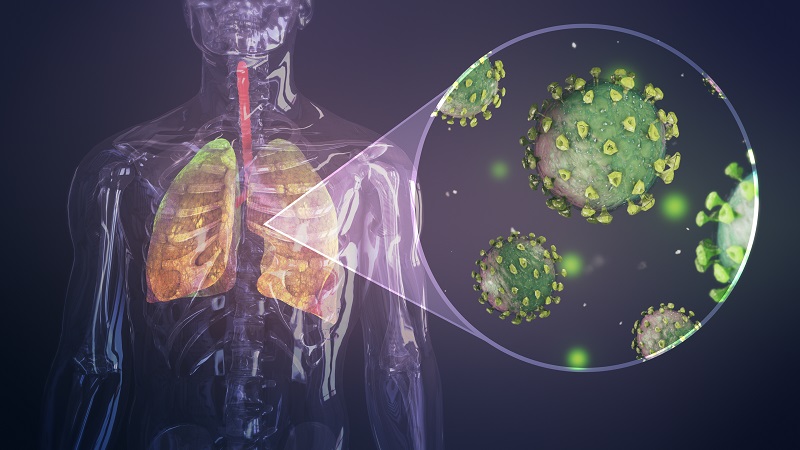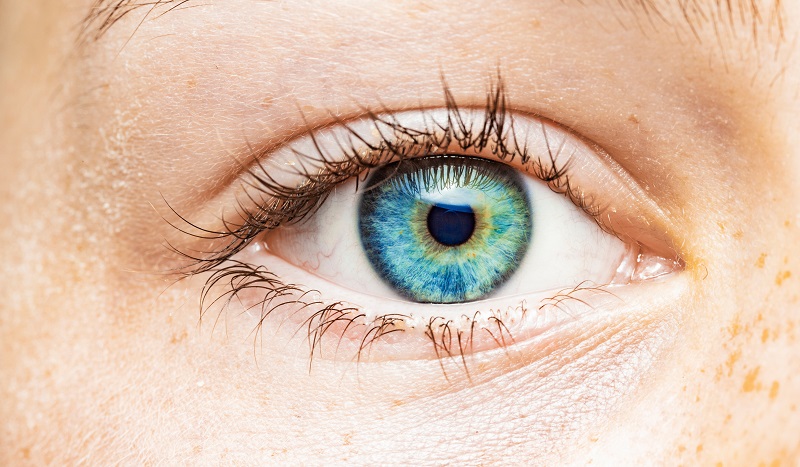MSC-Derived Exosomes for Cell Therapy

Researchers and scientists across the world are racing to find a cure for coronavirus infection. Officially named COVID-19 for Coronavirus disease 2019, the infection began in Wuhan in December of 2019. The ongoing pandemic has prompted social distancing measures and nationwide lockdowns.
Coronavirus disease is caused by a virus named SARS-CoV-2 or ‘severe acute respiratory syndrome coronavirus 2.’ This is a newly discovered coronavirus that causes the communicable infection primarily spread between humans through droplets generated when the infected person coughs or sneezes. COVID-19 causes respiratory symptoms that can vary in severity.
One of the ongoing clinical studies relates to the use of exosomes derived from mesenchymal stem cells (MSCs) to repair lung damage and control inflammation in the severe stage of the disease.
Disease severity
A majority of cases are believed to be mild that resolve on their own, while about 5% of people develop a critical illness that requires ventilation support. The disease severity and recovery rates based on current data are as follows:
- Mild disease: Most people (81%) develop a mild illness with little to no symptoms that resolve without requiring any special treatment.
- Severe disease: About 14% of people develop a severe form of the illness and experience difficulty in breathing or dyspnea along with reduced blood oxygen saturation.
- Critical disease: Close to 5% of cases progress to the critical stage associated with respiratory failure, septic shock, and multiple organ failure or dysfunction.
What are coronaviruses?
Coronaviruses are classified under the family of Coronaviridae that belongs to the Nidovirales order. Viruses that belong to the family of Coronaviridae cause diseases that affect intestinal, neurological, respiratory, and liver diseases in animals, including bats, cattle, camels, and cats.
About seven coronaviruses that affect humans have been identified. While some were detected in the 1960s, rest were detected in the 21st century.
Human coronaviruses can cause mild infections such as common colds and upper respiratory infections that resolve on their own. In immunocompromised individuals such as those with HIV or those on immunosuppressant drugs to prevent organ rejection, these viruses cause more severe forms of lower respiratory tract infection.
Other coronaviruses, including the recently identified MERS-CoV (Middle East Respiratory Syndrome Coronavirus) and SARS-CoV (Severe Acute Respiratory Syndrome Related Coronavirus), cause moderate to severe forms of respiratory illnesses.
How coronavirus enters the lungs
Viruses typically make use of different proteins to replicate themselves and enter the cells in the human body. The coronavirus, in particular, utilizes the ‘spike proteins’ attached to its surface to enter the human body. These proteins bind to specific ‘receptors,’ which are a type of protein on the host’s cell surface. The receptors act as gateways to the cell. The spike proteins of the virus bind to human cell receptors, after which the covering or membrane of the virus fuses with human cell membranes, enabling the virus genome to gain entry into the human cell. This begins the process of infection.
The receptors that the coronavirus targets are called ACE2 receptors that are present in almost all organs in the human body. However, the virus targets the ACE2 receptors present in lung cells, particularly.
About 13 to 14% of patients infected with COVID-19 develop severe lung disease. The time taken to progress to the critical stage is typically ten days, but some people can suddenly become critically ill.
The body first releases immune cells, including macrophages and neutrophils, to try to control the lung damage. The inflammatory substances (cytokines) that immune cells release cause blood vessels to become ‘leaky’ and release fluids. The extra pressure of these fluids causes lungs to collapse, leading to pneumonia and acute respiratory distress syndrome or ARDS.
Cure research for COVID-19: Mesenchymal stem cells exosomes to treat severe pneumonia in COVID-19
Multiple vaccines and drugs are being tested in clinical trials across the world as part of COVID-19 cure research.
One of the important clinical studies that are ongoing is the pilot study on ‘ Inhalation of Mesenchymal Stem Cells Exosomes Treating Severe Novel Coronavirus Pneumonia.’ The collaborative study sponsored by China-based Ruijin Hospital is being conducted at Shanghai Public Health Clinical Center, Wuhan Jinyintan Hospital, and Cellular Biomedicine Group Ltd. This is an effort to find an effective and safe therapy for patients who have severe to critical forms of COVID-19 marked by respiratory distress and dysfunction.
What are mesenchymal stem cells and exosomes?
Exosomes, in simple terms, can be described as ‘tiny bubbles’ that break off from the outer membrane of the cell. Called ‘extracellular vesicles or EV,’ these exosomes are found in blood, saliva, breast milk, urine, and other biological fluids. The size of these biomolecules ranges between 40 and 150 nanometres.
Exosomes contain growth factors, RNA, proteins, and other important cellular information. When they were identified in the 1980s, they were thought to be cellular waste products. Exosomes are believed to be a form of intracellular communication and transportation of molecules. Recent studies show exosomes contribute to the transportation of lipids, nucleic acids, and proteins.
The ability of exosomes to transport complex biologic information to recipient cells from donor cells is the main reason it contributes towards the maintenance of normal pathophysiologic conditions.
Extracellular vesicles can be classified into microvesicles, exosomes, or apoptotic bodies based on their composition, size, and biogenesis. The vesicles are also called nanoparticles, shedding vesicles, microparticles, and ectosomes in the literature. The diameter of the microvesicles ranges between 50 and 1000 nm, depending on the cell’s state during its release. Exosomes measure 40 to 200 nm and have a relatively homogenous size. The process of the formation of microvesicles and exosomes also differs. While budding or direct shedding from the plasma membrane releases microvesicles, exosomes are built through a process of folding of multivesicular bodies membranes within cells. When these bodies fuse with the plasma membrane, the exosomes are released.
Because of the natural cell membranes that exosomes possess, recent research has focused on using them for drug delivery. Natural materials are better tolerated as compared to synthetic polymers that have traditionally been used to deliver drugs. One study indicated exosomes’ ability to carry protein complexes that are recognized by immune cells (T lymphocytes) that promote immune responses.
Extracellular vesicles secreted by a type of immune cells called dendritic cells have the capacity to generate humoral responses (the immune responses controlled by macromolecules in plasma) against antigens that provide powerful protection against infection.
Mesenchymal stem cells, abbreviated as MSCs, are ‘adult’ stem cells that are multipotent, which means they can produce more than one specialized cell type. MSCs make various specialized cells in the skeletal tissues where they can specialize in adipocytes (fat cells), osteoblasts (bone cells), or chondrocytes (cartilage cells). Each of these specialized cells possesses its own structure, shape, and functions.
Mesenchymal stem cells are found in multiple tissues such as bone marrow, fat tissue (adipose tissue), and umbilical cord tissue and amniotic fluid (the fluid that is present in the placenta surrounding the fetus). Their capacity to self-renew by division and differentiation into multiple tissues such as muscle, fat cells, bone, cartilage, and connective tissue is the reason that contributes to their therapeutic value.
MSCs have been extensively studied for their endogenous repair properties. Pre-clinical studies suggest MSCs accelerate repair and recovery in renal injury by exerting anti-inflammatory, antiapoptotic (preventing cell death), mitogenic (generation of new cells), and angiogenic (formation of new blood vessels) properties. They have also been studied for their therapeutic value in treating neurodegenerative, autoimmune, and cardiovascular diseases.
Exosomes derived from MSCs contain lipids, growth factors, cytokines, and RNAs. Researchers have found evidence that MSC-derived exosomes have the potential to be an effective cell-free therapy.
MSCs derived exosomes have beneficial effects on multiple diseases, including cancer, liver injury, and myocardial infarction in laboratory studies. Researchers have studied extensively the immunomodulatory properties of exosomes derived from MSCs.
These exosomes have been shown to play crucial roles in presenting and carrying functional protein complexes that help activate immune cells (T cell activation). Exosomes from bone marrow-based MSCs are known to effectively prevent GVHD (graft-versus-host disease) in animal models by mitigating over-activation of immune cells, reducing pro-inflammatory agents (cytokine production), and by promoting the generation of anti-inflammatory substances.
MSC-derived exosomes are a promising therapy in wound healing and tissue repair. The effects of these exosomes can be enhanced under certain conditions, including hypoxia (low oxygen levels). Lung injuries marked by hypoxia can accelerate the release of exosomes because of the stimulation of cytokines.
The therapeutic effect of MSCs derived exosomes have also been studied in many lung conditions including asthma, pulmonary hypertension, and ARDS (Acute respiratory distress syndrome), which is a severe lung condition marked by capillary damage, respiratory failure, and the build-up of debris in lung spaces. ARDS is associated with a mortality rate of 40%. Recent research indicates MSCs have the potential to treat ARDS. Exosomes derived from MSCs have been observed to reduce lung inflammation in ARDS while also having therapeutic benefits in treating bacteria-induced ARDS. Exosomes from MSCs reduce edema (swelling), collection of fluid in lung spaces, and neutrophil infiltration that are associated with lung injury.
Bacterial pneumonia is one of the most common causes of respiratory failure that carries a high mortality rate despite advances in supportive care. Several studies show that MSCs are effective in treating pneumonia because of the secretion of growth factors, antimicrobial peptides, and anti-inflammatory cytokines. These factors enhance repair, mitigate cellular injury, and decrease injury.
Asthma is another inflammatory disease that is chronic and is characterized by lung inflammation and airway constriction that promotes structural changes within the airways, typically in response to air pollutants, infections, and allergens. While many therapeutic strategies are deployed to reduce inflammation of airways, no treatment has been found to be effective in speeding up the repair and healing of damaged lungs. Some studies have found MSCs derived exosomes reduce lung inflammation and speed up repair.
Although research on MSC-derived exosomes’ therapeutic use is ongoing, scientists believe it has significant potential for the treatment of lung injuries and other conditions due to
- The ability to store exosomes without using preservatives.
- Non-requirement of bone marrow transplant to store exosomes, which potentially means more number of facilities can perform stem cell therapy.
- The potential ability to administer multiple doses of MSC-derived exosomes without affecting the respiratory or hemodynamic variables significantly.
Enrollment criteria for the study
- The enrollment criteria for the study are participants who
- Consent to the treatment arm
- Are aged between 18 and 75 years
- Have confirmed coronavirus infection linked pneumonia
- Have a severe or critical form of confirmed COVID-19 that is further marked by
- Respiratory distress
- Respiratory rate more than 30 times/min
- Pulse oxygen saturation (SpO2) at rest ≤ 93%
- Respiratory failure, and the requirement for mechanical ventilation
- Shock
- Other organ failure and requirement for ICU monitoring
The objective of the interventional clinical trial is to evaluate the efficacy and safety of aerosol inhalation of MSC exosomes that are derived from adipose mesenchymal stem cells in treating severe pneumonia linked to COVID-19.
Participants of conventional treatment arm will receive conventional treatment in addition to five times MSCs derived exosome aerosol inhalation, while the second group will receive only
five times MSCs derived exosome aerosol inhalation.
Primary outcomes that will be measured include
- Adverse reaction up to 28 days
- Safety evaluation for the first 28 days post first treatment
- Time taken for clinical improvement
- Efficiency evaluation
Secondary outcome measures include
- Number of patients weaned off mechanical ventilation
- Number of days spent in the ICU
- Number of patients who experience improvement in organ failure
- Rate of mortality
Some of the other outcome measures include
- Organ failure assessment daily
- Lymphocyte Count
- C-reactive protein (CRP)
- Lactate dehydrogenase
The study concludes on July 31, 2020, by which time the efficacy of MSC-derived exosomes in treating pneumonia and lung damage in critically ill patients with COVID-19 would be known.
More articles:




